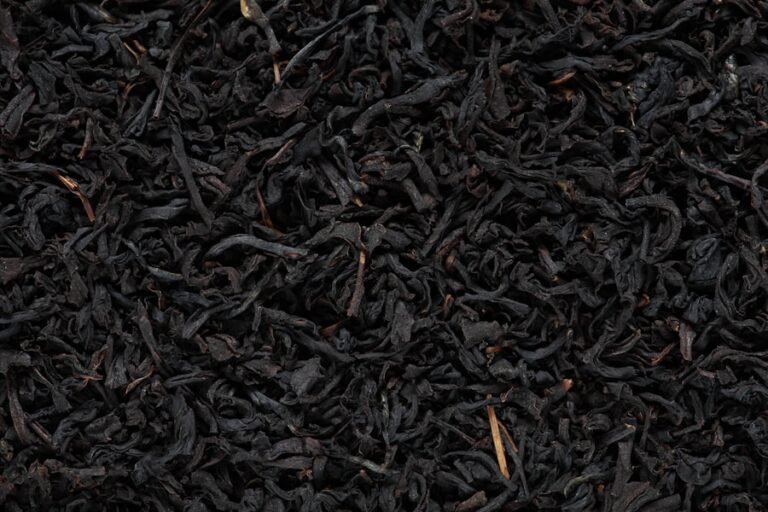Easy and Effective DIY Solutions for a Stuffy Nose
A stuffy nose, also known as nasal congestion, is a common condition that occurs when the tissues and blood vessels in the nasal passages become swollen and inflamed. This can be caused by a variety of factors, including allergies, colds, sinus infections, and environmental irritants such as smoke or pollution. When the nasal passages become congested, it can make it difficult to breathe through the nose, leading to discomfort and difficulty sleeping. Understanding the underlying causes of nasal congestion is important in order to effectively treat and manage the condition.
Allergies are a common cause of nasal congestion, as the body’s immune system reacts to allergens such as pollen, dust, or pet dander by releasing histamines, which can cause swelling and inflammation in the nasal passages. Colds and sinus infections can also lead to nasal congestion, as the body’s immune response to the infection can cause the nasal tissues to become inflamed. In addition, environmental irritants such as smoke, pollution, or strong odors can also trigger nasal congestion in some individuals. By identifying the specific cause of nasal congestion, individuals can take steps to address the underlying issue and find relief from their symptoms.
Steam Inhalation: A Simple and Effective Remedy
Steam inhalation is a simple and effective remedy for nasal congestion that can help to open up the nasal passages and provide relief from congestion. This natural remedy works by inhaling steam, which helps to moisten and soothe the nasal tissues, reducing inflammation and swelling. To use steam inhalation as a remedy for nasal congestion, individuals can simply boil a pot of water and then carefully lean over the pot, covering their head with a towel to trap the steam. Breathing in the steam for 5-10 minutes can help to loosen mucus and clear the nasal passages, providing relief from congestion.
In addition to plain steam inhalation, individuals can also add essential oils such as eucalyptus or peppermint to the water to enhance the decongestant effects of the steam. These essential oils have natural decongestant properties and can help to further open up the nasal passages and provide relief from congestion. Steam inhalation can be used as often as needed to provide relief from nasal congestion, making it a convenient and accessible remedy for individuals experiencing stuffy noses.
Nasal Irrigation: Clearing Out Congestion with a DIY Solution
Nasal irrigation, also known as nasal lavage or nasal douche, is a practice that involves flushing out the nasal passages with a saline solution to clear out mucus and congestion. This simple and effective remedy can help to relieve nasal congestion and improve breathing by removing irritants and allergens from the nasal passages. Nasal irrigation can be done using a variety of devices, including neti pots, squeeze bottles, or bulb syringes, which can be filled with a saline solution and used to flush out the nasal passages.
To make a saline solution for nasal irrigation, individuals can mix 1 teaspoon of non-iodized salt with 2 cups of warm distilled or boiled water. The saline solution can then be used to irrigate the nasal passages, helping to clear out mucus and congestion. Nasal irrigation can be especially helpful for individuals with allergies or sinus infections, as it can help to remove allergens and irritants from the nasal passages, providing relief from congestion and discomfort. Nasal irrigation can be done once or twice a day to help keep the nasal passages clear and provide relief from nasal congestion.
Eucalyptus Oil: A Natural Decongestant for Quick Relief
Eucalyptus oil is a natural decongestant that can provide quick relief from nasal congestion by opening up the nasal passages and reducing inflammation. This essential oil has been used for centuries as a remedy for respiratory conditions, and its decongestant properties make it an effective option for individuals experiencing stuffy noses. Eucalyptus oil contains a compound called eucalyptol, which has been shown to have anti-inflammatory and decongestant effects, making it a valuable remedy for nasal congestion.
To use eucalyptus oil for nasal congestion, individuals can add a few drops of the oil to a bowl of hot water and then carefully lean over the bowl, covering their head with a towel to trap the steam. Breathing in the steam infused with eucalyptus oil can help to open up the nasal passages and provide relief from congestion. In addition to steam inhalation, eucalyptus oil can also be added to a carrier oil such as coconut or almond oil and then applied to the chest or throat to help clear congestion and improve breathing. Eucalyptus oil can provide quick and effective relief from nasal congestion, making it a valuable remedy for individuals seeking natural and gentle options for managing their symptoms.
DIY Saline Nasal Sprays: A Gentle and Soothing Option
Saline nasal sprays are a gentle and soothing option for relieving nasal congestion and improving breathing. These simple sprays contain a saline solution that can help to moisturize and clear out the nasal passages, providing relief from congestion and discomfort. Saline nasal sprays can be used as often as needed to provide relief from nasal congestion, making them a convenient and accessible option for individuals experiencing stuffy noses.
To make a DIY saline nasal spray, individuals can mix 1 teaspoon of non-iodized salt with 2 cups of warm distilled or boiled water, and then add the solution to a clean nasal spray bottle. The saline nasal spray can then be used to moisturize and clear out the nasal passages, providing relief from congestion and discomfort. In addition to providing relief from nasal congestion, saline nasal sprays can also help to remove allergens and irritants from the nasal passages, making them a valuable option for individuals with allergies or sinus infections. Saline nasal sprays are a gentle and soothing option for relieving nasal congestion and improving breathing, making them a valuable remedy for individuals seeking natural and non-invasive options for managing their symptoms.
Herbal Teas and Hot Drinks: Soothing and Clearing Congestion
Herbal teas and hot drinks can provide soothing relief from nasal congestion and help to clear out the nasal passages, making it easier to breathe. Certain herbs and spices have natural decongestant properties and can help to open up the nasal passages, providing relief from congestion and discomfort. In addition, the warmth of hot drinks can help to soothe the throat and provide relief from coughing and irritation. Herbal teas and hot drinks can be a valuable remedy for individuals experiencing stuffy noses, providing gentle and natural relief from congestion.
Peppermint tea is a popular choice for relieving nasal congestion, as it contains menthol, which has natural decongestant properties and can help to open up the nasal passages. Ginger tea is another effective option for clearing out congestion, as ginger has anti-inflammatory and decongestant effects that can provide relief from nasal congestion. In addition to herbal teas, hot drinks such as lemon water with honey can help to soothe the throat and provide relief from coughing and irritation. By incorporating herbal teas and hot drinks into their daily routine, individuals can find soothing relief from nasal congestion and improve their breathing.
Elevating the Head: Simple Tips for Better Breathing at Night
Elevating the head while sleeping can help to improve breathing and provide relief from nasal congestion. When the head is elevated, it can help to reduce the buildup of mucus in the nasal passages and make it easier to breathe through the nose. This simple tip can be especially helpful for individuals experiencing nasal congestion at night, as it can help to improve sleep quality and reduce discomfort.
There are several ways to elevate the head while sleeping, including using extra pillows to prop up the head and upper body, or using a wedge pillow designed specifically for elevating the head. By elevating the head while sleeping, individuals can reduce the symptoms of nasal congestion and improve their breathing, making it easier to get a good night’s sleep. In addition to elevating the head, individuals can also use a humidifier in the bedroom to add moisture to the air and help keep the nasal passages clear. By incorporating these simple tips into their nightly routine, individuals can find relief from nasal congestion and improve their sleep quality.
DIY Chest Rubs: Using Essential Oils for Nasal Congestion
DIY chest rubs can provide relief from nasal congestion by using essential oils to open up the nasal passages and improve breathing. Chest rubs are a popular remedy for relieving congestion and discomfort, as they can be applied directly to the chest and throat to provide soothing relief. By using essential oils with natural decongestant properties, individuals can create their own chest rubs to help clear out congestion and improve their breathing.
To make a DIY chest rub, individuals can mix a few drops of essential oils such as eucalyptus, peppermint, or tea tree oil with a carrier oil such as coconut or almond oil, and then apply the mixture to the chest and throat. These essential oils have natural decongestant properties and can help to open up the nasal passages, providing relief from congestion and discomfort. In addition to providing relief from nasal congestion, chest rubs can also help to soothe the throat and provide relief from coughing and irritation. By using DIY chest rubs with essential oils, individuals can find natural and effective relief from nasal congestion.
Hydration and Humidity: Easy Ways to Keep the Nasal Passages Clear
Staying hydrated and maintaining humidity in the air can help to keep the nasal passages clear and provide relief from nasal congestion. When the body is well-hydrated, it can help to thin out mucus and make it easier to clear out the nasal passages. In addition, using a humidifier in the home can add moisture to the air and help to keep the nasal passages clear, reducing the symptoms of nasal congestion.
Drinking plenty of water throughout the day can help to keep the body well-hydrated and make it easier to clear out mucus from the nasal passages. In addition to staying hydrated, using a humidifier in the home can help to add moisture to the air and prevent the nasal passages from becoming dry and irritated. By incorporating these simple tips into their daily routine, individuals can keep the nasal passages clear and find relief from nasal congestion.
Knowing When to Seek Professional Help for Persistent Nasal Congestion
While many cases of nasal congestion can be effectively managed with home remedies and over-the-counter treatments, it is important to know when to seek professional help for persistent or severe nasal congestion. If nasal congestion is accompanied by other symptoms such as fever, facial pain, or colored discharge from the nose, it may be a sign of a more serious underlying condition such as a sinus infection, and individuals should seek medical attention. In addition, if nasal congestion persists for more than 10 days or is accompanied by severe discomfort or difficulty breathing, it is important to consult a healthcare professional for further evaluation and treatment.
In some cases, persistent nasal congestion may be a sign of underlying allergies or sinus issues that require medical intervention. Healthcare professionals can provide a thorough evaluation of the nasal passages and recommend appropriate treatments to address the underlying cause of nasal congestion. This may include prescription medications, allergy testing, or other interventions to provide relief from nasal congestion and improve breathing. By seeking professional help for persistent nasal congestion, individuals can receive the appropriate care and treatment to manage their symptoms and improve their quality of life.







